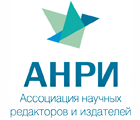DOI 10.17586/0021-3454-2023-66-8-704-710
UDC 681.382
EXPERIMENTAL STUDIES OF A THERMOELECTRIC DEVICE FOR COOLING DISCRETE ELECTRIC RADIO ELEMENTS
Dagestan State Technical University, Department of Theoretical and General Electrical Engineering;
O. V. Evdulov
Dr. Sci., Associate Professor; Dagestan State Technical University, Department of Theoretical and General Electrical Engineering;
Read the full article
Reference for citation: Ibragimova A. M., Evdulov O. V. Experimental studies of a thermoelectric device for cooling discrete electric radio elements. Journal of Instrument Engineering. 2023. Vol. 66, N 8. P. 704—710 (in Russian). DOI: 10.17586/0021-3454-2023-66-8-704-710.
Abstract. A device is developed for cooling discrete electrical radio elements (DERE). The sources of cold in the device are standard thermoelectric modules (TEMs), which form two sections with the main and additional heat exchange systems. An experimental stand is described, and results of full-scale tests of the device are presented. Graphs of temperature changes over time at various points of the thermoelectric device (TED) structure - the DERE simulator for a set of values of the TEM supply current and the power of the DERE simulator are obtained experimentally. It is determined that the developed thermal power plant can use TEM of the DRIFT-1.5 type produced by Cryotherm (St. Petersburg). It is been found that when using this type of thermal modules, the temperature of the DERE can be reduced to 272 K at a power current close to the optimal (5 A), while the time to enter the mode is 90 s. The discrepancy between experimental and calculated data is estimated to be no more than 10 %.
Abstract. A device is developed for cooling discrete electrical radio elements (DERE). The sources of cold in the device are standard thermoelectric modules (TEMs), which form two sections with the main and additional heat exchange systems. An experimental stand is described, and results of full-scale tests of the device are presented. Graphs of temperature changes over time at various points of the thermoelectric device (TED) structure - the DERE simulator for a set of values of the TEM supply current and the power of the DERE simulator are obtained experimentally. It is determined that the developed thermal power plant can use TEM of the DRIFT-1.5 type produced by Cryotherm (St. Petersburg). It is been found that when using this type of thermal modules, the temperature of the DERE can be reduced to 272 K at a power current close to the optimal (5 A), while the time to enter the mode is 90 s. The discrepancy between experimental and calculated data is estimated to be no more than 10 %.
Keywords: electric radio element, thermoelectric device, thermoelectric module, laboratory sample, cooling, experimental installation, measuring experiment
Acknowledgement: The study was supported by the Russian Science Foundation grant No. 23-29-00130, https://rscf.ru/project/23-29-00130/.
References:
Acknowledgement: The study was supported by the Russian Science Foundation grant No. 23-29-00130, https://rscf.ru/project/23-29-00130/.
References:
- Sharkov A.V., Korablev V.A., Gerasyutenko V.V., Zarichnyak Yu.P. Sistemy okhlazhdeniya i termostatirovaniya (Cooling and Temperature Control Systems), St. Petersburg, 2021, 89 р. (in Russ.)
- Arkharov I.A., Makhotin I.D. Journal of International Academy of Refrigeration, 2022, no. 4, pp. 21–28. (in Russ.)
- Gaydin N.M., Poklonskaya M.V., Paliy A.V. Engineering journal of Don, 2021, no. 10(82), pp. 77–85. (in Russ.)
- Kudzh S.A., Kondratenko V.S., Kadomkin V.V., Visokanov A.A. Proceedings of universities. Electronics, 2020, no. 4(25), pp. 347–357. (in Russ.)
- Ssennoga T., Zhu J., Yuying A., Li B. Renewable and sustainable energy reviews, 2016, vol. 65, рр. 114–121.
- Vasil’ev E.N. Russian Microelectronics, 2020, no. 2(49), pp. 123–131.
- Snyder G.J., LeBlanc S., Crane D. et al. Future energy, 2021, vol. 5, рр. 748–751.
- Tan H., Fu H., Yu J. Applied Thermal Engineering, 2017, vol. 123, рр. 845–851.
- Zhang L., Shi X.-L., Yang Y.-L., Chen Z.-G. Materials today, 2021, vol. 46, рр. 62–108.
- Ismailov T.A., Evdulov O.V., Magomadov R.A.-M. Okhlazhdayushchiye sistemy na baze sil'notochnykh termoelektricheskikh poluprovodnikovykh preobrazovateley (Cooling Systems Based on High-Current Thermoelectric Semiconductor Converters), St. Petersburg, 2020, 285 р. (in Russ.)
- Finn P.-A., Asker C., Wan K. et al. Frontiers in electronic materials, 2021, vol. 1, рp. 1–13.
- Shi X.-L., Zou J., Chen Z.-G. Chemical reviews, 2020, vol. 15, рр. 7399.
- Ibragimova A.M., Evdulov O.V. Nizkotemperaturnyye i pishchevyye tekhnologii v XXI veke (Low-Temperature and Food Technologies in the 21st Century), X International Scientific and Technical Conference, St. Petersburg, October 27–29, 2021, рр. 12–-15. (in Russ.)
- http://www.kryotherm.spb.ru. (in Russ.)
- Vasil’ev E.N. Thermophysics and Aeromechanics, 2022, no. 3(29), pp. 419–430. (in Russ.)
- Evdulov O.V., Ibragimova A. M., Magomedov T.Yu. Herald of Daghestan State Technical University. Technical Sciences, 2022, no. 2(49), pp. 9–17. (in Russ.)











